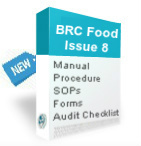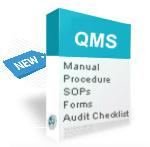
The practice of ensuring that organizations follow social and ethical standards is known as social compliance. This might include a wide range of subjects such as environmental conservation and human rights. The number of brands operating in many countries grows along with globalization. Brands may find it challenging to keep an eye on their supply chains and make sure that all businesses comply with their social and ethical standards as a result. Social conformity enters the picture at this point.
As the world is increasingly interconnected, businesses must comply with a range of social standards to succeed. The process of making sure a business complies with all applicable laws, rules, and ethical standards is known as social compliance. Social compliance is crucial for businesses for several reasons. First and foremost, it assists in making sure that businesses are acting morally and legally. It can help to protect the business and its workers from negative legal outcomes. Social compliance can also assist companies in preventing negative publicity and establishing fruitful partnerships with stakeholders.
Compliance with social standards can also benefit a company’s overall profits. Customers nowadays are increasingly interested in supporting businesses that act ethically and responsibly. You may get into this expanding industry and boost your bottom line by ensuring that the company is socially responsible. Overall, social compliance is simply smart business practice. It assists businesses in reducing risk and developing a more sustainable business model. To be successful in the long run, businesses must consider their social impact as the world grows more interconnected.
Specialist agencies conduct social compliance audits to determine whether a factory is in line with the relevant standards. These audits can be extremely beneficial to brands because they provide an unbiased appraisal of a company’s operations. Yet, it is vital to emphasize that social compliance is not a guarantee that a factory is operating ethically. It is also not a replacement for other sorts of monitoring, such as on-site brand representatives. Yet, when utilized effectively, social compliance audits may be a crucial tool in ensuring that brands operate ethically and responsibly. Organizations must first prepare the documentation to implement and become certified. The following is a list of the Social Compliance documents that are required for the certification process:
- Procedures: It includes a sample copy of mandatory procedures that cover all aspects of the Social Compliance standard.
- Standard operating procedure: The document includes (SOPs) Standard operating procedures that encompass all of the elements of the social compliance standard.
- Policies: It includes a sample copy of policies that address all of the details of the Social Compliance requirement.
- Social Committee: It covers a sample copy of the social committee covering all the details of the Social Compliance standard.
- Exhibits: It covers sample copies of exhibits covering all the details of the Social Compliance standard.
- Aspects / OHS Hazards: It includes a sample copy of all aspects of OHS hazards and risks covered by the Social Compliance standard.
- Register of rules and regulations: It includes an example copy of the rules and regulations registry, which includes all of the information of the Social Compliance standard.
- Formats: Forms or templates required to maintain records, establish control, and create a system.
- Audit checklist: It includes sample audit questions that are based on all of the Social Compliance requirements. It assists the auditor in creating an audit checklist for rapid and accurate auditing to guarantee all Social Compliance requirements have been satisfied.
- Sample major emergency preparedness plan: It includes a sample major emergency plan for Social Compliance certification.








